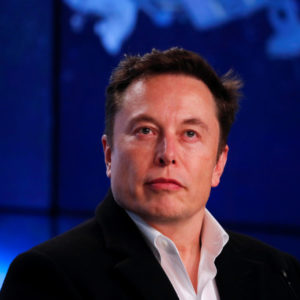Last year, e-commerce giant Amazon started working on a model, combining AI and econometrics, to predict price fluctuations. Amazon’s Core AI team believes the model can be upgraded to predict inflation. An economist was critical in deploying the machine learning model for this project effectively, the team said.
“I believe economists have the right basics to excel in data science. From the very start, economics students are taught how to deal with data through different subjects such as economics, statistics and mathematics. Important concepts such as Correlation, Hypothesis Testing, Econometrics (application of statistical methods to economic data), Linear Algebra, form the basis of data science projects. Even during the ‘coding’ sessions, students get to learn how to ‘analyse and derive insights’ from the data, rather than how to ‘optimise the code’ efficiently vis a vis engineering schools,” said Shirish Gupta, lead data scientist at Novartis.
It’s now clear that economics and data science make good bedfellows. But how much value does an economist bring to data science and consequently can economists make good data scientists? We find out.
The coding problem
Most economists deal in statistical computing programs like Stata that work well with data science. However, being fluent in programming languages such as Python, MATLAB and R can help economists to crack the data science code.
“I have met many talented data scientists who have trained in Economics, Mathematics, Statistics, Commerce, etc., with no background in programming. Even those from several engineering streams, including civil and chemical, often have very little exposure to programming, at least in India. What we refer to as coding skills for data science are in fact the ability to think logically and understand underlying data structures,” said Sayandeb Banerjee, CEO of TheMathCompany.
Thanks to the overlap between machine learning and econometrics, the learning curve has shortened. Besides, economists have a good grasp in the math that underpin data science methods. The tribe thrives on building a set of rules to solve abstract concepts, much like data scientists.
Detecting bias
Econometrics is the application of statistical methods to economic data to tease out causal relationships. Data scientists build models to find patterns in datasets. Economists harbour a healthy scepticism towards data and correct a statistical model’s potential biases based on the empirical evidence and controlled trials. The economists are trained to question outcomes and have the tools to detect bias in a dataset. These skills can be translated to optimise the data science methods.
Data presentation
Today, the presentation of data is almost as essential as the data itself. Economists have the ability to present complex data to stakeholders from non-technical backgrounds like managers, marketers, copywriters and clients in an intelligible manner. Data scientists, who are usually from STEM disciplines, have trouble relaying the complex methods and results. Economists can fill in the gap to enable seamless communication.
“Economists come with a built-in problem-solving framework. They are usually great at communicating quantitative work to a wider audience. They have a firm grip on human behaviour and can thus connect the dots and be a bridge between programmers, management and business. Their mind is conditioned to think beyond numbers, take an interdisciplinary approach towards a given problem and interpret it as a way towards driving actionable insights,” said Suvadip Chakraborty, vice president at HSBC.
Concept
Economists can help the clients navigate the finance and regulatory issues around their systems. This knowledge is invaluable in understanding the implications of machine learning models. Understanding the impact of AI technology, especially in the middle of a pandemic is critical. Economists can dig companies out of holes in the wake of mass supply-chain disruptions.
“Economists are often trained to look through a broader lens to connect various smaller events together and make sense of it. Data science is mostly applied on a specific topic that has backward and forward linkages. Economists can make a model more holistic with their understanding of macro and micro elements affecting an event. Economists can understand a business problem better given their focus on the ‘big picture’ and they can help in design thinking to make a solution/asset more comprehensive and targeted,” said Indrajit Mitra, associate director at Deloitte Consulting.
In the past few years, data science has embraced economics big time. According to a study by 365 DataScience, approximately 13% of the current crop of data scientists have a degree in economics. The perception that economics is concerned with ideas beyond data sciences have faded. The Nobel Prize for Economics in 2018 was given to Paul Romer who used open-source software Jupyter Notebooks while reproducing and sharing his research work. Additionally, The Economist announced its Big Mac Index data for its first open-source program which uses R.
“There is a difference between economists and those who are trained in economics. Most data science teams don’t necessarily require an economist unless they are working on problems such as long-range forecasting. However, those who are trained in economics can greatly help data science teams be well-rounded. They can improve the team’s ability to go beyond numbers and understand the nuances of the business problem at hand, formulate the right problem, and build solutions that can be easily consumed by business stakeholders,” Sayandeb added.

























